This independent research study was conducted by surveying 270 Florida State University (FSU) students ages 18 – 23 years old. FSU is attended by individuals from all over the country, who represent this cultural breakdown: 19% Hispanic/Latino, 8% Black or African American, 2.4% Asian, and 64% White.
The telecommunications industry has evolved drastically since the first mobile phone call was placed more than 45 years ago during an era where only the wealthiest of consumers owned a mobile phone. Fast-forward to today and the number of mobile users in the world is expected to reach 2.7 billion by the end of the year and since millennials were the first generation to grow up with smartphones, they have largely driven the trends we’re seeing for mobile usage today. Nielson Mobile Insights further supports this statement, confirming that smartphone penetration is at 98% among millennials age 18 – 24. Following in second at 97% smartphone penetration is millennials age 24 – 35. Since millennials clearly rule the mobile/digital world, it only made sense that we delve deeper into the preferences and trends that surround their unique mobile-centric lives. In order to explore these trends even further, we conducted a survey to clarify our assumptions of today's millennial smartphone users.
It’s no secret that technological advances in telecommunication have made communication much easier. Our study showed that millennials love to communicate, but they’re still not big fans of making a traditional phone call. Smartphone applications such as WhatsApp, Facebook Messenger, and Skype, allow anyone to easily communicate with friends, family, or businesses no matter where they are in the world. Of those millennials we surveyed, a whopping 97.77% indicated they would rather text or use other messaging platforms as their primary way to communicate. What we conclude from this is that millennials prefer to communicate when they want (a phone call is an intrusion on their time), they take time to think about they’re reply (craft a safe, non-committal response), and they answer communications at their leisure (because they are busy). The article, “Wondering why that millennial won’t take your phone call? Here’s why” from the Guardian, supports this by explaining how millennials use written forms of mobile communication more often because it is the least intrusive and allows for others to get back to them at their leisure as well. Our survey revealed that only 2.23% of those sampled prefer voice calls as their main form of communication, while 51.30% prefer texting, 40.89% use messaging apps, and 5.58% prefer using social media platforms.
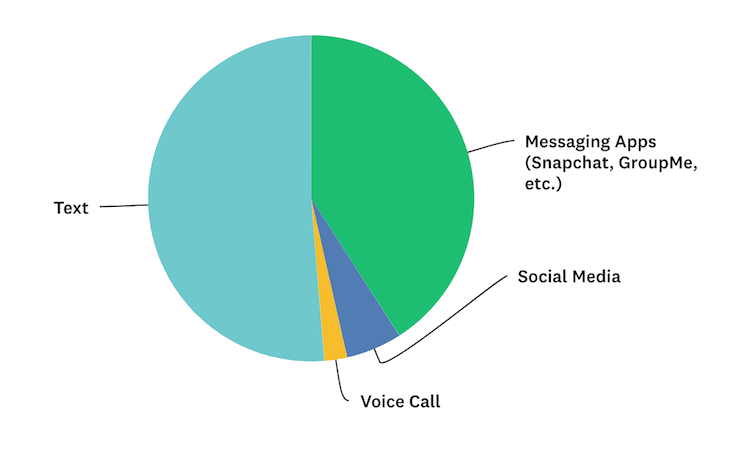
When compared to making a voice call, 97.77% of millennials surveyed indicated they would rather text or use alternative messaging apps as their primary way to communicate.
When millennials do make a voice call, they increasingly choose to use enhanced forms of communication like FaceTime or Skype to do so. Of those we surveyed, 40.89% showed a preference for using FaceTime as a means of making a call, compared to 51.30% who indicated they still prefer to make a traditional voice call. This known behavioral shift aligns with millennials desire for ‘enhanced’ interactions, which video calling can deliver by enabling the exchange sights, sounds and facial expressions during a conversation.
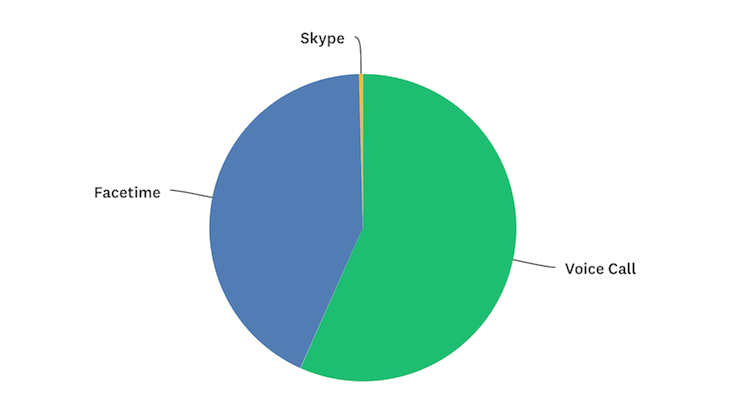
Our study also revealed something that surprised us - mobile app usage has become a highlighted segment for smartphone usage research since there are millions (and still growing) applications available to mobile users. This smartphone obsession has continued to intensify among the millennial population. A recent B2X study reports that 25% of millennials spend more that 5 hours a day on their smartphones, so it wasn't that shocking to us that they would use a multitude of apps. However, in our survey, 59.85% of millennials reported only using 3 – 5 apps regularly, and only 28.25% indicated that they use between 6 – 8 apps. Only a mere 9.29% of those surveyed claimed that they use 9 or more apps daily. The millennials we spoke to tend to stick to the apps they know and love, and of course to the ones that all their millennial friends are using. They also connect with their peers through the same social media and communication apps, and develop similar interests in fundamental (Amazon, Uber, etc.) or gaming apps. Hence why millennials have a core set of apps they use frequently, and other apps that are typically used only once, for a short period of time, or sporadically as needed.
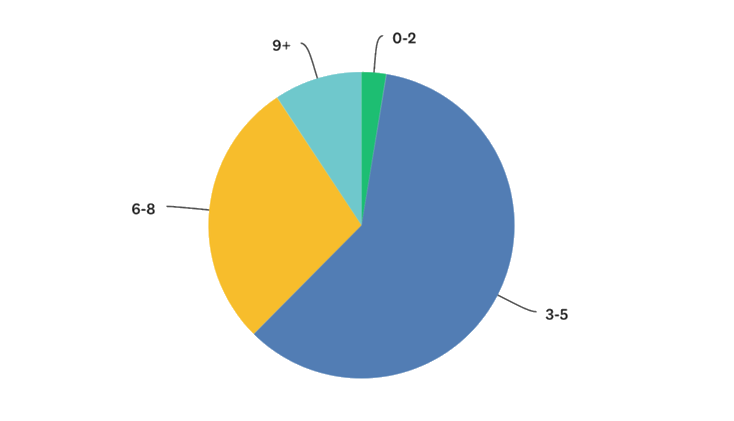
Now with all of the buzz surrounding Rich Communication Services (RCS) and its promise of widespread adoption to inevitably replace standard SMS with it advanced messaging features, we felt it was only fitting for us to ask the top smartphone users in the market, if the new features RCS interests them? After all, if there is a simpler, quicker, or more exciting way to do something, millennials will surely figure it out. So we asked them if they would use Messaging as a Platform (MaaP) to order food, purchase movie or plane tickets, or shop, as a replacement for individual brand apps. They undeniably liked the idea of this. With only 14.87% of those surveyed indicating that they would not want to connect with brands through their native messages, the other 85.13% of respondnets were either excited about it or intrigued and wanted more information. Almost 20% of those reported that they would absolutely use RCS to carry out these tasks if it were available.
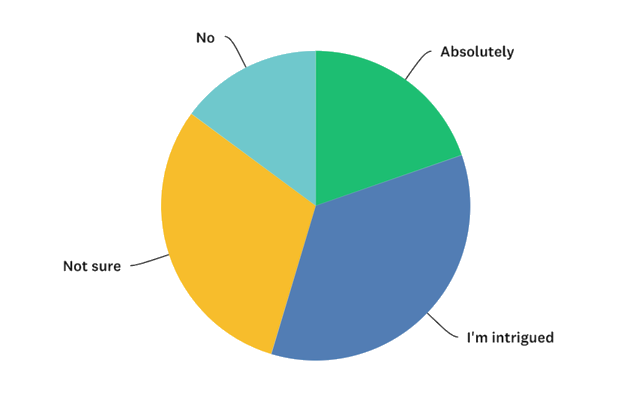
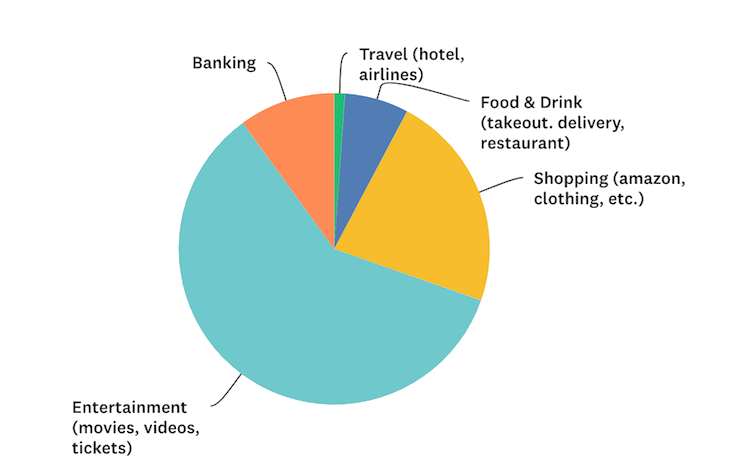
Based on the results of our research and survey overall, it is clear that the millennial market is ready for the enhanced capabilities available through RCS. Millennials are the most heavy mobile users, spending 5+ hours a day on their smartphone, so their desire for simplier and more engaged ways to communicate is growing. Thus in turn, driving the demand for mobile operators to launch new solutions that will provide advanced communication features. It’s finally time for mobile operators to transform into digital service providers to reinsert themselves into the subscribers mobile life. After all, millennials have largely been the drivers of innovation over the last decade, fueling the opportunity for operators to leverage this consumer behavioral shift to drive relevancy for the subscriber and remain competitive in the market.